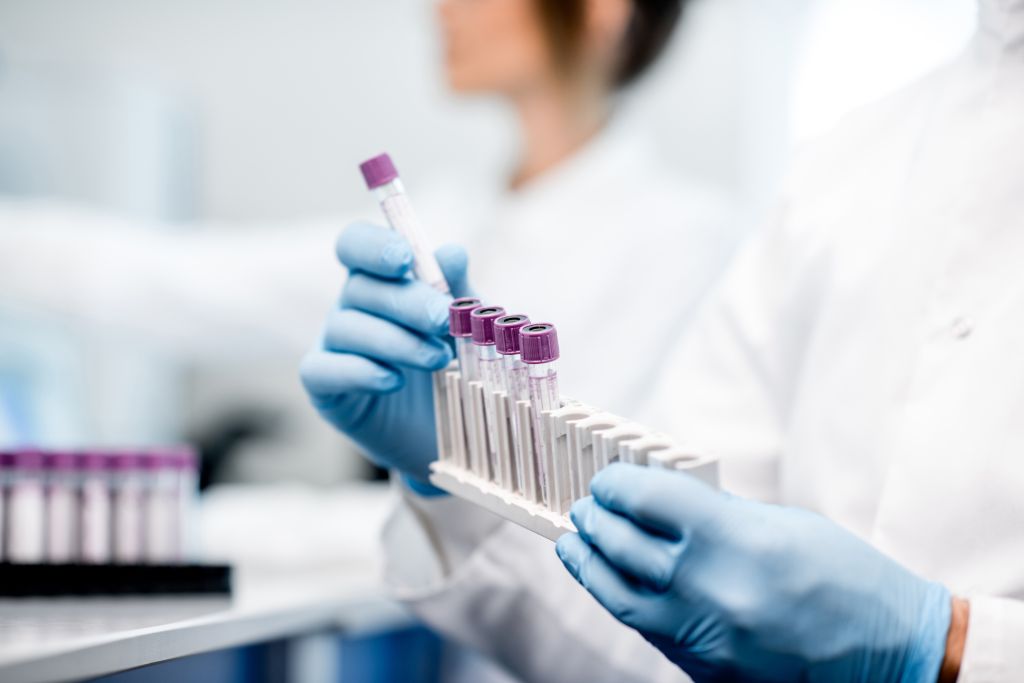
ACMG ACT Sheets and Algorithms contain guidelines for providers regarding positive newborn screening results, as well as specific scenarios in carrier screening, diagnostic testing, family history, secondary findings, and transitioning pediatric patients to adult healthcare.
https://www.acmg.net/ACMG/Medical-Genetics-Practice-Resources/ACT_Sheets_and_Algorithms/ACMG/Medical-Genetics-Practice-Resources/ACT_Sheets_and_Algorithms.aspx?hkey=9d6bce5a-182e-42a6-84a5-b2d88240c508
Disease Info Search is a quick reference for many different genetic disorders, and includes information about clinical trials, support groups, news and events, and relevant publications.
https://diseaseinfosearch.org/
Genetic and Rare Diseases Information Center (GARD), part of the NIH National Center for Advancing Translational Sciences, contains an online encyclopedia of information about 6,500 rare disorders, each of which affect fewer than 200,000 people worldwide, as well as a few non-rare disorders. The list can be browsed from A to Z, by category, by new entries, or by keyword search. https://rarediseases.info.nih.gov/diseases
- GARD Healthcare Professionals resources include articles about ICD coding for rare diseases, tips for healthcare professionals caring for a patient with a rare disease, and a diagnosis assist tool. Providers can also call or email a GARD information specialist to help navigate to the information that may be most useful for them.
https://rarediseases.info.nih.gov/guides/pages/97/healthcare-professionals
Genetics Home Reference on MedLine Plus is a health information resource with information about more than 1,300 genetic conditions, over 1,400 genes, chromosomes, and mitochondrial DNA. It is a useful resource for both providers and patients.
https://medlineplus.gov/genetics/
GeneReviews is a database of genetic conditions, with each chapter written by experts in that particular condition and peer reviewed. There are currently 789 chapters, which are published online and can be searched by keyword.
https://www.ncbi.nlm.nih.gov/books/NBK1116/
The Medical Home Portal contains 55 diagnosis modules for primary care physicians, 38 pages with instructions regarding positive newborn screen results, and links to relevant scientific literature and other resources.
https://www.medicalhomeportal.org/about-portal
Autism and Genetics (WEBINAR) Autism: What Can Genetics Tell Us?
The National Center for Hearing Assessment and Management (NCHAM) has resources available for healthcare professionals including position statements, a TeleAudiology guide, educational and training videos, information about privacy regulations, and a family resource guide.
http://www.infanthearing.org/index.html
MSRGN Ehlers-Danlos Syndrome (EDS) Algorithm and Resources for Primary Care is a list of resources, including a practical guide of steps to take for providers who suspect their patient may have EDS.
https://www.mountainstatesgenetics.org/projects/eds-algorithm/
The National Organization for Rare Disorders (NORD) is a nonprofit organization with more than 300 patient organization members. NORD funds educational, advocacy, research, and patient service programs.
- The NORD Rare Disease Database includes brief introductions on various rare diseases for physicians, patients, and caregivers, which can be viewed alphabetically or searched by keyword.
https://rarediseases.org/for-patients-and-families/information-resources/rare-disease-information/ - The National Organization for Rare Disorders (NORD) Online Physician Guides are available to assist primary care doctors in identifying and managing the care of patients with rare disorders.
https://rarediseases.org/for-patients-and-families/information-resources/physician-guides/
New England Regional Genetics Network (NERGN) Resources is a database of resources for families, healthcare providers, and public health workers. It includes resources created by NERGN as well as other sources.
https://www.negenetics.org/resources/library
The National Coordinating Center (NCC) for the Regional Genetic Networks coordinates all 7 regional genetics networks in the country, including NYMAC. NCC resources for medical information about genetic conditions include:
- NCC Resource Repository (ReRe) is a public access database containing resources for patients, genetics providers and other healthcare providers, public health workers, educators, policymakers, and insurers. The resources were created by the National Coordinating Center, the Regional Genetics Networks, the National Genetics Education and Family Support Center, and other partners. It is searchable by topic, intended audience, and by keyword search.
https://nccrcg.org/resources/ - NCC Genetics Education Newsletter (GENE) is published quarterly, and contains information and links to educational resources developed by the Regional Genetics Networks, the National Genetics Education and Family Support Center, and the NCC. It is available for download on the NCC website, or via email subscription.
https://nccrcg.org/gge/gene/
